For the first time in their lives, Graney and about 20 Herndon High seniors, witnessed a ceremony where people became Americans. The students took an active part in the Thursday morning, Dec. 4, ceremony in Fairfax, offering their musical talents and curiosities to hear the immigrants’ stories of why they came to the United States. They appreciated the time spent learning out of classroom, as they saw things they could not learn within Herndon High walls or from a textbook.
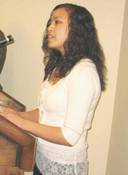
Jennifer
Chuon sings the national anthem at the naturalization ceremony.
"You could see the people’s expression, that’s not something you can
read in a textbook," said Jennifer Chuon, who also sang the national
anthem at the ceremony. She said she was nervous at first to sing the anthem
in front of a large audience, but then she noticed one of the new citizens
singing along with her, which had a calming effect.
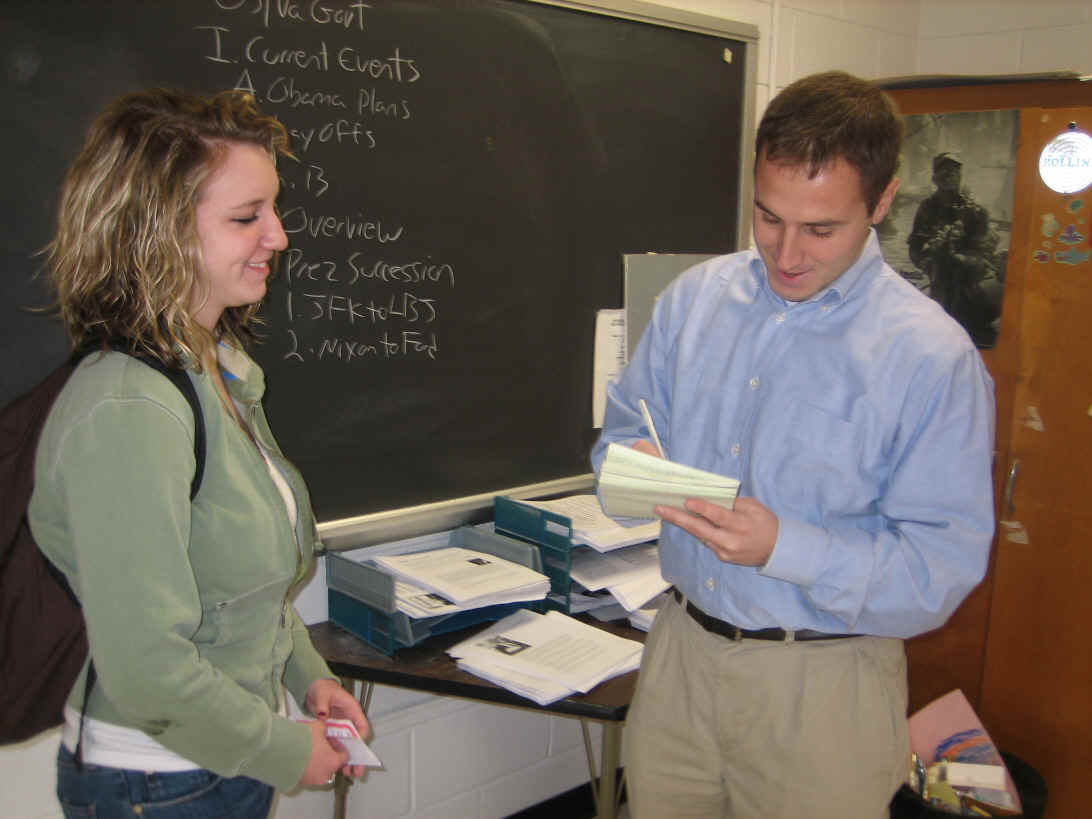
Hilary being interviewed
"It was great," said Hilary Lesnoski about the ceremony. "I was
engaged in it and I had never seen something like it before," she said.
"It was interesting to see how many people come here for the American
dream."
JHOANNE MONTANO said she could not get the feeling of what it means to become
a U.S. citizen from a regular school lesson. She talked to a woman who had
just become a citizen after the ceremony and asked her why she came to
America. "This woman just said she came here for destiny," said
Montano.
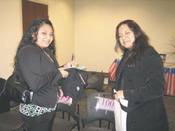
Herndon
High senior Norma Miranda, left, speaks to a new American citizen from El
Salvador, the same country her parents are from.
Norma Miranda also talked to a couple of new Americans after the ceremony,
including a man from China who came to the U.S. to study medicine, a limited
opportunity for him in China. The immigrant whose story touched Miranda the
most was a woman who escaped from the civil war in El Salvador, as did
Miranda’s parents more than 20 years ago. "I really didn’t know what
it meant to become a citizen," said Miranda, although she often discusses
immigration issues with her parents.
Attending school in Herndon has exposed Graney’s students to immigration
issues, not because they live or attend school in a community where
immigration plays a significant political role, but because their friends and
family members are immigrants. For example, Montano’s parents are Bolivian,
but she was born in the United States. Although her parents have not become
U.S. citizens, Montano said she would push them to go through the process,
"To have the same feeling that I have" as an American. She added
that it was gratifying to see people from many cultures become Americans. She
said that is what Americans are made of, one nation of many different peoples.
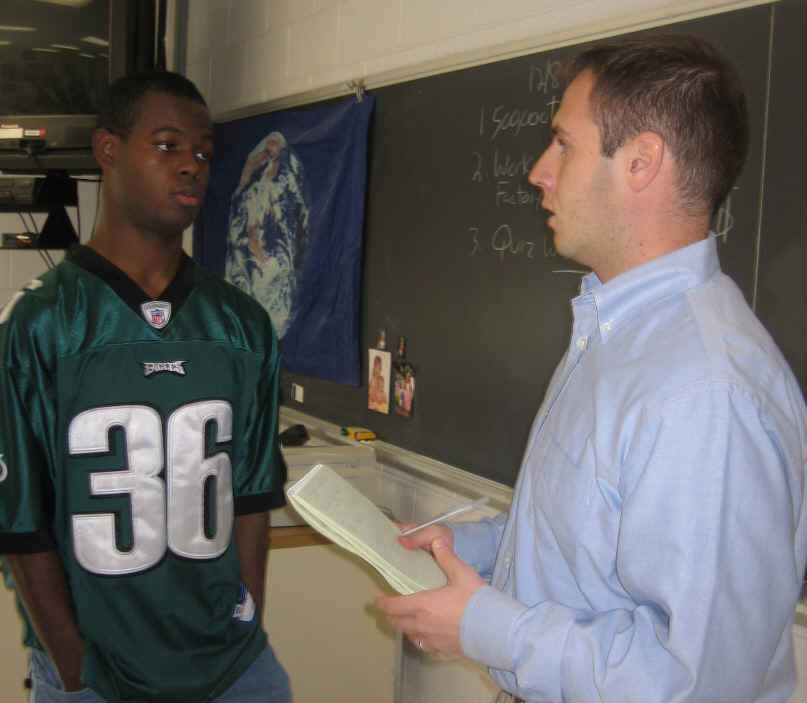
Ryan being interviewed
RYAN HAYES said it was important to him as an African American that
stereotypes about immigrant populations be eliminated. He said attending the
ceremony could help those with stereotypical views break those beliefs.
Sarah Wilson said that by growing up in the area she had grown accustomed to
many different cultures. She said it is sad that some people in the area have
negative opinions of immigrants. "Being born here, we have it easy,"
said Wilson.
Brenda Igboegwu, a student who came to the U.S. from Nigeria about 10 years
ago, said she saw the ceremony as part of a process she may go through in the
future.
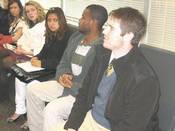
Will Geiger poses a question on the
bureaucratic process to representatives of U.S. Government departments at the
ceremony.
Will Geiger said the ceremony showcased the extent of bureaucracy at work,
with representatives from a number of U.S. departments, including State and
Homeland Security, attending the ceremony. He said about half of the new
citizens seemed emotional to become citizens, while the other half seemed
relieved to complete the lengthy process. "They’re just tired of
it," said Geiger.
The students recommended attending a naturalization ceremony to others, even
if they are not a part of a group learning about immigration. "It is a
great opportunity to learn about people’s different cultures," said
Lesnoski, a self-described 75 percent Pole.
